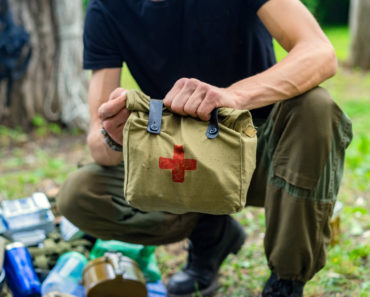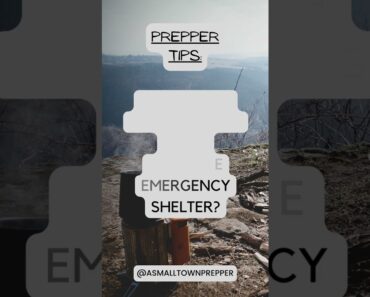We’ve all been hoping that things would get better, ever since COVID surprised us in 2022. A lot of people were looking forward to the end of the pandemic this year. While I can’t say that it has totally gone away, we’ve finally reached the point where COVID has faded into the background and we can get back to something resembling normal. That’s making some of our “friends” mad, as they enjoyed forcing the rest of the nation to dance to their tune of fear; but looking at it realistically, most of the cases now are the omicron variant, which is nowhere near as dangerous.
While we should get our lives back to normal, we shouldn’t let our guard down. With viruses, there’s always a risk of some new mutation coming along. Just look at influenza, which still kills tens of thousands of people each year. While the odds say that future variants of COVID should be less virulent; those aren’t betting odds.
But what about the rest of our lives? We’re still suffering greatly from the financial impact of the COVID pandemic and how the government dealt with it. That impact isn’t going to go away anytime soon. Looking back, the lockdowns may have been necessary; but it’s clear that it went too far. We, the People, allowed our government a level of control over our lives that never should have happened. Unfortunately, there are politicians who are all but salivating over the idea of going back to that level of control over us.
Other than that, what can we expect to see in this coming year? Here’s my take on it.
The Economy
The big news these days is the economy, specifically the high inflation we’re seeing. While the White House is trying to bury that story, the reality is that everything is costing us more than it did before. The current “official inflation rate” is lower than it was a few months ago; but that’s only because of gasoline prices and those prices are being artificially held low by the president releasing petroleum from the strategic reserve, for political purpose, of course.
Two areas which are suffering seriously from the current inflation rate are the housing market and groceries. My sister, who lives in Denver, bought a house about a year and a half ago. That house, which isn’t all that big, is supposedly worth $100,000 more today, than it was when she bought it. Part of that is the Denver housing market; but that’s being driven up even more by the cost of building new houses.
We can expect our buying power to continue decreasing over the next couple of years. Until the White House changes their monetary policy and Congress stops spending money like it’s toilet paper, the inflation rate is going to stay high and may go even higher than what we’ve seen. This will not only hurt our buying power, but hurt the unemployment rate as well.
Energy Costs
As I just mentioned, gas prices are being artificially held down by the president releasing petroleum from our strategic reserves. This can only go on so long and when it comes to a stop, we can expect gas prices, as well as energy prices for our homes, to rise. I honestly didn’t expect them to drop this low, especially with our current shortage of refining capability.
You can’t attack an entire industry, like politicians have with the petroleum industry, and think it won’t have any effect. During the pandemic, the need for gasoline was reduced drastically. This led to the petroleum industry converting some refineries to bio-fuels and to shut others down, lowering our national capacity to refine crude oil. When the need came back up, it stretched our refining capacity. That happened at the same time that the president was tightening up restrictions on new oil drilling, canceling the Keystone Pipeline and doing other things to attack the petroleum industry.
What this means is that no new refineries will be built anytime soon; I’m not just talking the next year or two; I’m talking years, perhaps forever. There’s no sense in investing billions of dollars into something that the government wants to shut down. That alone is enough to drive prices up.
Ongoing Shortages
We’ve been experiencing supply chain shortages ever since the great toilet paper shortage of 2020. Some of these can be attributed to specific problems that have occurred, such as plants burning down or production capacity being switched to other products during the pandemic. But not all of them are that clear. We’re seeing shortages on products for which there’s no logical reason; yet we’re having to deal with it.
Much of this has to do with how delicately balanced the supply chain is. Products are produced to fill an expected need. When that need evaporates, manufacturers just about have to change their manufacturing lines, so as to produce something that they can sell. Otherwise, they can’t remain in business. This happened throughout the pandemic and is probably going to plague us for years.
Earn Your Food Independence NOW
Hurricanes
Officially, we’re supposed to have a reasonable year, as far as hurricanes are concerned. They’re saying 15% lower than normal, whatever normal is. I personally don’t trust that. The last couple of years have been light ones, hurricane wise, meaning that we’re probably due for a bad one. For those living in hurricane zones, you know how unpredictable they can be, so be ready.
Wildfires
California has had a serious problem with forest fires the last few years, primarily in the heat of summer. This has largely been caused by poor forest management, not removing or burning off deadfalls and thick underbrush. The current state administration is against doing that maintenance on the grounds that it is tampering with nature.
Of course, California is not the only state that has problems with wildfires, any state with a lot of forest cover has it. Colorado is known for their forest fires too. Overall, the trend isn’t looking good, as less and less effort is being put into preventative action.
Power Outages
Both of the states I just mentioned, California and Colorado, have had to institute rolling blackouts in the summertime, to make up for electricity shortfalls. This is a result of more and more dependence on wind and solar power, rather than more reliable fossil fuels. The trend is likely to continue, affecting more and more states in the coming year.
That’s not all that’s wrong with our electrical grid though. Much of the grid is old and not enough effort is being put into maintenance. So much of the available money is being paid out as incentives to build “green energy” that it is affecting the maintenance of power lines. Improperly maintained lines and right of ways lead to power lines going down and wildfires.
As a nation, we’re digging this hole deeper and deeper every year, in a mad rush to switch over to supposedly “renewable” energy sources. Even if we were to make the decision to switch directions, it would take years to fill in the hole we’ve dug ourselves into.
Drought
Our nation’s largest reservoirs are at their historic lowest levels, with little chance of that changing in any meaningful way. At the same time, some of our most important aquifers are drying up, as more water is drawn from them than naturally replenishes them. While we won’t see the nation as a whole running out of water anytime soon, we are going to see some areas dealing with heavy drought, especially the Southwest. That will extend farther north in the western part of the country, which could have an impact on farming and ranching.
New Diseases
The COVID pandemic seems to have broken open the dam, as far as disease is concerned. Granted, it’s not the first “new” disease that’s ever come along; but it is the first nationwide epidemic of those proportions in a long time. Although we haven’t heard much about it, the monkey pox seems to be following along and is nearly as serious.
The bigger problem may not be the new diseases, as it will be how our world’s governments react to them. After the experience of shutting everything down due to COVID, many politicians are going to see that as the answer to every new disease that comes along. If they do and manage to keep shutting things down, the “cure” is going to end up being worse than the disease. We still don’t know the full cost of the pandemic, but when you count in the impact on our children’s education and how many businesses were shut down for good, it was enormous. How many such incidents can we survive, before the entire world’s economy is in shambles (please note: when I’m talking about the economy, I’m talking about people’s livelihood, not major corporations or the stock market)?
More Problems with Russia
Vladmir Putin has dug himself in a hole with his debacle in Ukraine. Between his failure at conquering the neighboring country and his bluster about using nuclear weapons, he has lost a lot of credibility on the world’s stage. That’s one thing our friend in the Kremlin can’t stand. He’s got to find a way out.
The way I see it, Putin has backed himself into a corner and he’s got to have a victory to survive. That means either beating Ukraine, invading another country to have a win or going nuclear. Which he chooses is impossible to foresee, but it won’t be pretty. A widening of the current war could have worldwide repercussions, especially if he attacks a NATO country and we get involved.
This Isn’t All
This obviously isn’t all that’s going to happen in the New Year, just a few highlights. More than anything, I think we must realize that things aren’t going to get better. Don’t expect 2023 to be a great year, making up for what has happened in 2020 through 2022. Time and nature don’t feel they owe us anything; so we’d better be ready.



























